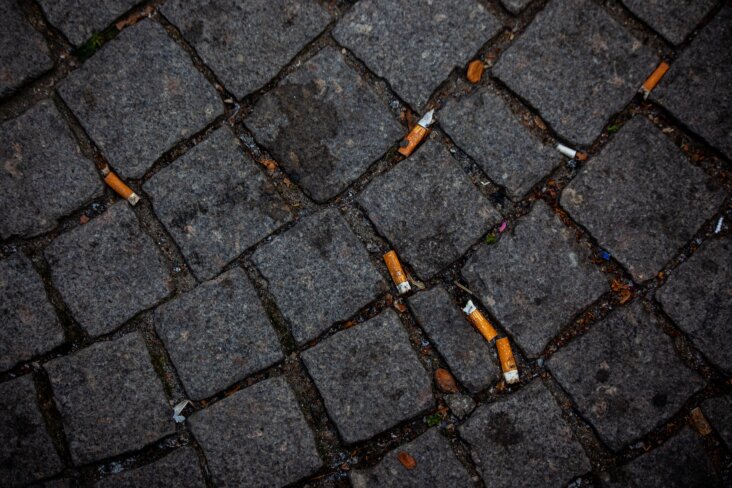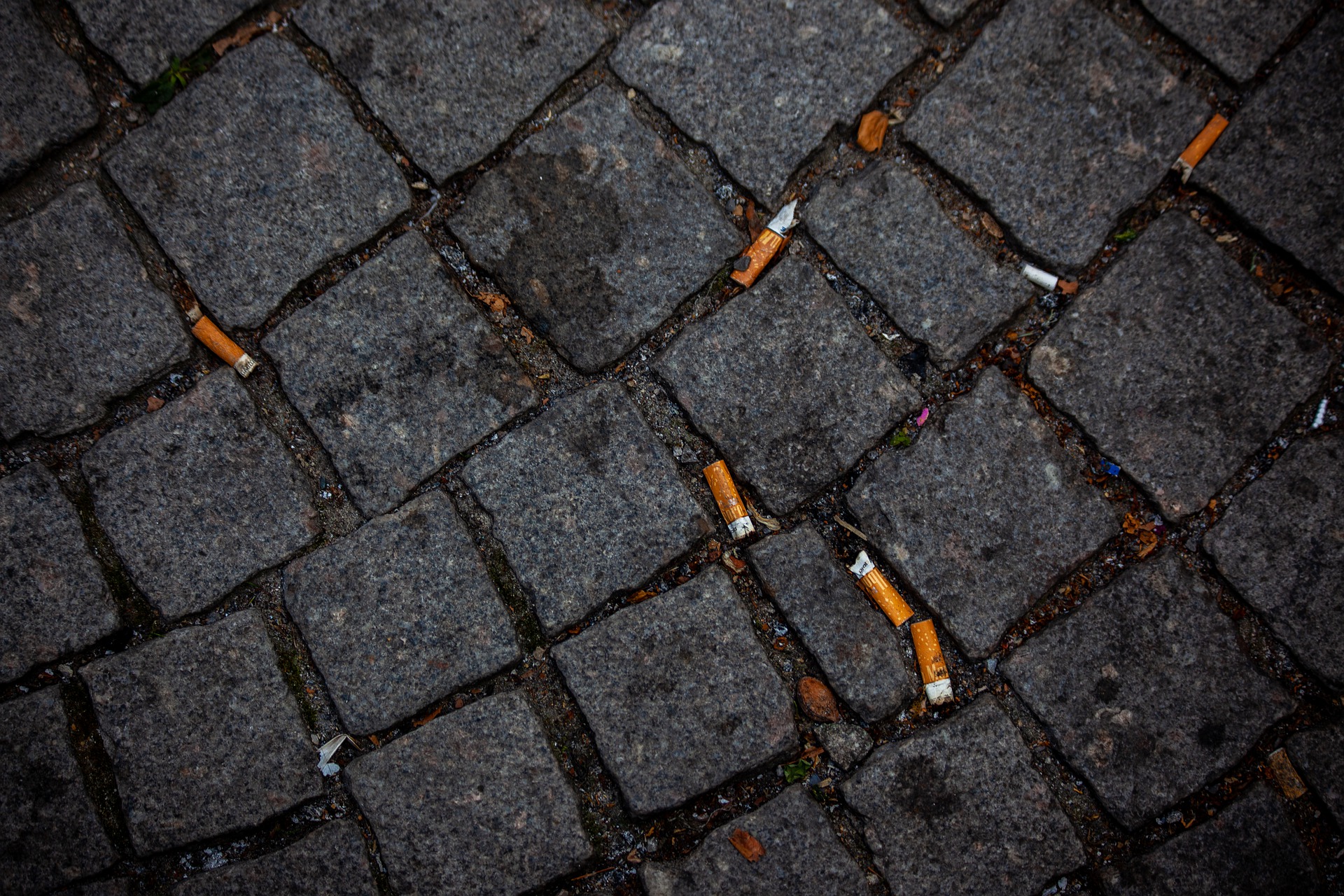
Cigarette butts are the top plastic polluters, with an estimated two-thirds of the trillions of filters used each year. (Credit: Jasmin Sessler / Pixabay)
Cigarette butts are the world’s most littered item. According to National Geographic, smokers around the world buy roughly 6.5 trillion cigarettes each year. That’s 18 billion every day.
95% of cigarette filters are made of cellulose acetate, plastic fibers that are thinner than a sewing thread and packed tightly together to create a filter that can look like cotton. According to a report of the National Institute of Standards and Technology, the cellulose acetate of the cigarette butts tend to linger in the environment for extended periods of time due to the lack of chromophores for absorbing UV light. After two years of outdoor decomposition, minimal microbial degradation was indicated. This stability may be due to the nitrogen limitations in the butts.
Think before you flick — cigarette butts aren't biodegradable









